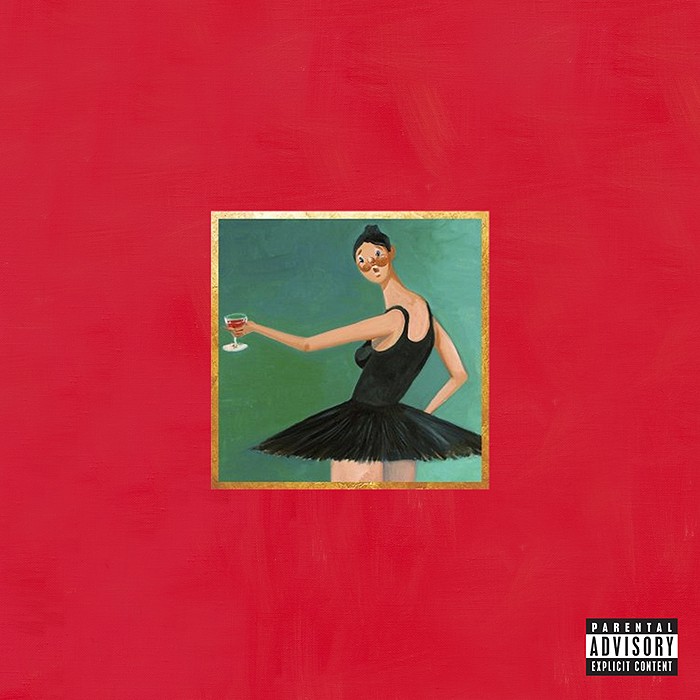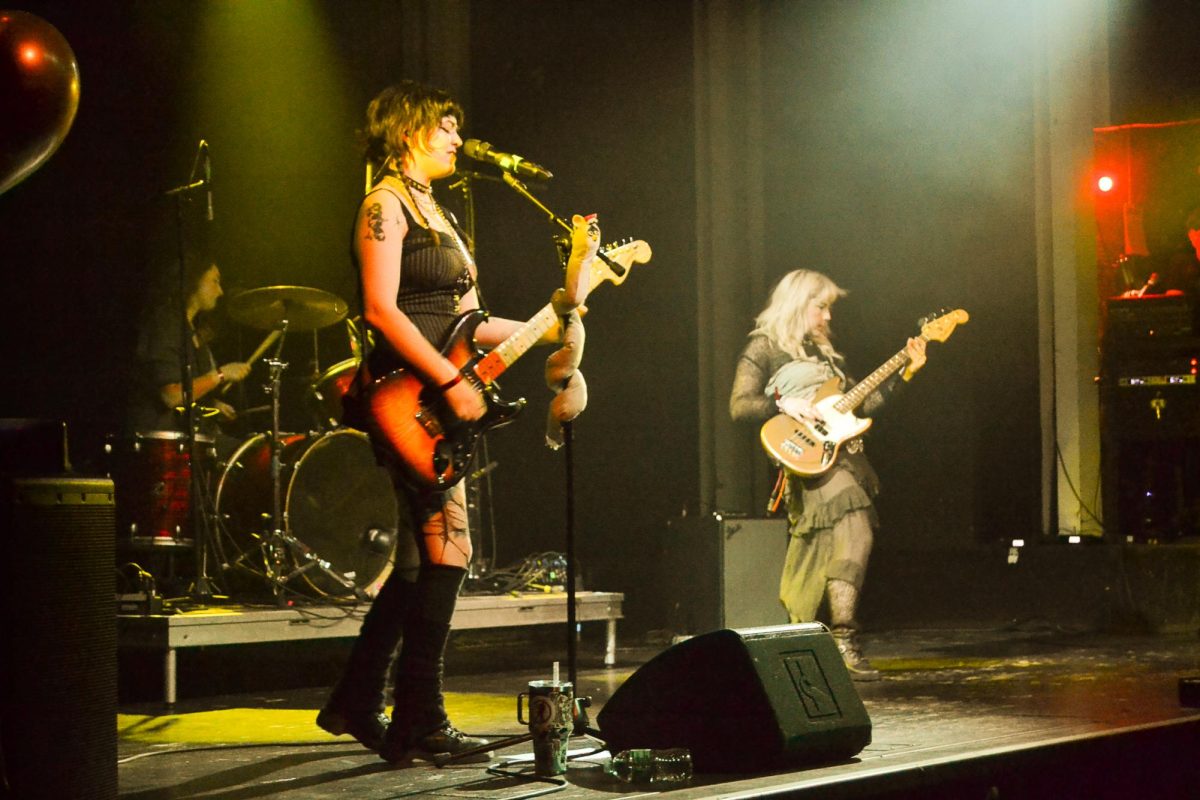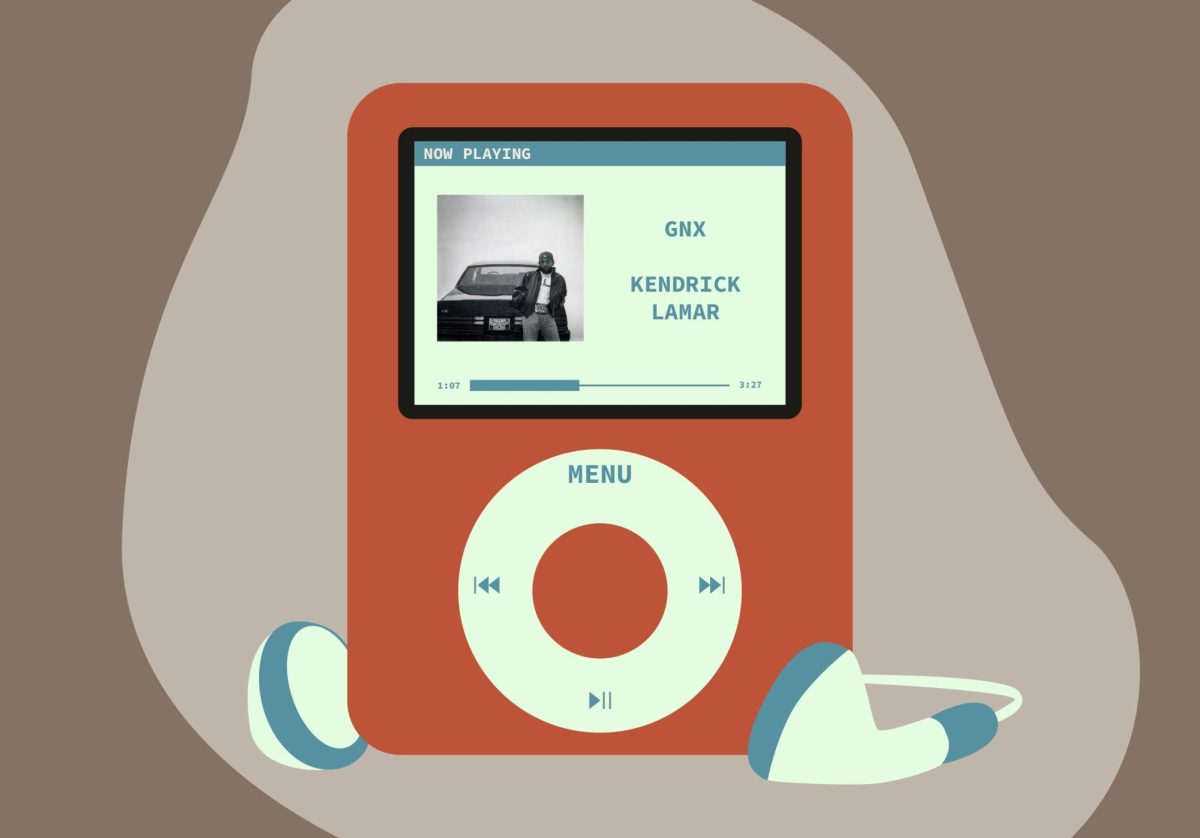ItâÄôs hard to listen to Kanye WestâÄôs new record without being a bit forgiving towards all of his public stumbles. So letâÄôs just go ahead and say that maybe Mr. West was never meant for this grand arena of celebrity âÄî one that has devolved from a spotlight and into a coliseum of ridicule that he only brings on himself. Surely, the most miniscule demonstration of tactfulness could have saved this frustrated artist a substantial amount of face over the course of a career that has now become equally defined by both creative output and MTV temper tantrums. But can anyone blame him?
While his peers are getting AâÄôs for mastering addition and subtraction, no one seems to notice that West has had long division down since âÄúLate Registration.âÄù So now, Mr. West returns with âÄúMy Beautiful Dark Twisted Fantasy,âÄù an album that is everything but apologetic. This is his ultimate assertion that in spite of every instance of whining or ego, he is the best mind in hip hop. After listening to this towering accomplishment of style and structure, it is hard to argue differently.
This did not happen overnight. From the oft-used intermittent skits of the first two records, to the strictly singles approach of âÄúGraduationâÄù and even the quasi-reactionary intent of âÄú808âÄôs and Heartbreak,âÄù West has constantly challenged the methods behind his constant exploratory molding of personal biography, celebrity and hip-hop intellectualism. It is this latter sense of scholastic emcee theory that defines âÄúMy Beautiful Dark Twisted Fantasy.âÄù Because if West isnâÄôt going to apologize for his disparaging TMZ-bait behavior, he best be validated by a work of perfection.
And so the record begins with a reiteration that this next effort by West offers more than some hot singles. The versatile Nicki Minaj, in a subtle preview of her animal, schizophrenic verve, offers a versed spoken-word introduction. She manages to encapsulate the significance of the albumâÄôs wholeness. More importantly, the delivery of this uncanny female bard indicates from syllable one that this is an attempt at the masterwork, and without adhering even to the expectations that may stem from his previous efforts, he dives into âÄúDark Fantasy,âÄù a ruminative examination of his rise and an immediate continuation of WestâÄôs refusal to settle. A challenging choir of voices chants, âÄúCan we get much higher? / So high,âÄù over stark keys that slowly synthesize with the invading back-and-forth bass line. It is a track that sounds only celebratory of his ability to rarely rest on his laurels.
This challenging of stylistic standards is after all what has always separated West from his top-40 peers. While it has also been the fulcrum for ego and attitude, his resulting biography has led to this fascinating transparency in his approach. West has developed a personal history that has become so inseparable from the greater cultural significance of contemporary popular music, a thread of creation that has only been increasingly defined by an accepted laziness among the largest stars. And his only recourse to this current standard is to magnify his hated monster of self-involvedness and turn it against an industry only interested in the status quo.
On âÄúDark Twisted Fantasy,âÄù the hits come harder. Apparently, aware of the trackâÄôs magnitude, he precedes âÄúAll of The LightsâÄù with a small overture distilling the instrumental and percussive tension anyone within an earshot is about to endure. What follows is an extremely deliberate spectacle of the modern single. He creates an aural drama of form âÄî one filled with walls of snares and strings that only grow higher with contrasting punctuated silence. That Rihanna chorus only reaffirms this trackâÄôs place on the radio, but West approaches the job as an artistic architect rather than an airwave star. This man has established his credentials since his production of Jay-ZâÄôs âÄúIzzo (H.O.V.A.)âÄù Be it the magnitude of âÄúAll of the LightsâÄù or the slow-burn pacing of âÄúRunaway,âÄù he is crafting a celebratory assertion of his virtuosity.
It is understandable that all of this could be interpreted as West once again taking himself too seriously. However, songs like âÄúMonster,âÄù with all of his corporeal snarls and tongue-in-cheek egotism, keep the recordâÄôs heart-on-the-sleeve nature from becoming too distancing.
On âÄúRunaway,âÄù Pusha TâÄôs chorus laments over WestâÄôs ability to âÄúalways find something wrong.âÄù Such a statement seems to elevate some thread of truth both within his personal life and creative endeavors. WestâÄôs curse and blessing may ultimately be his possession of a consciousness that is all too analytical. Even more fascinating is the way his songs tend to evoke the same sort of obsession within the listener. For all of his childish antics under the limelight, West constructs tracks like an unparalleled professional.
It is a peculiar dichotomy explored on âÄúDark Twisted Fantasy,âÄù one in which an artist bearing such emotive confusion can so flawlessly splatter his internal mess onto these tracks. Such stylistic and thematic synthesis paves the way to make this WestâÄôs masterwork. HeâÄôll have to work hellishly hard to match this record. However, if the album can attest to anything, itâÄôs that heâÄôs an artist that will be able to do it.
4/4 stars








